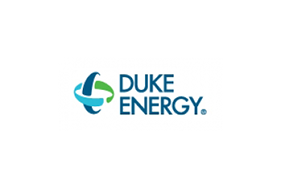Could These Habits Be Wasting Energy in Your Home?
9 ways to build energy efficiency habits around the house
Published 08-01-22
Submitted by Duke Energy

By Laurinda Schenck
Building energy-efficient habits starts with breaking some of the bad ones. Here are tips on how to break some common energy-wasting habits to help set you on the path to potential energy (and money) savings.

Standing in front of an open fridge
We open our refrigerators an average of 33 times per day, according to ENERGY STAR. So limiting your time browsing the fridge will help save energy by preventing it from draining more power to maintain the cold temperature setting.
Leaving electronics plugged in when not in use
Leaving unused electronics like phone chargers and laptops plugged in wastes small amounts of energy that can add up. Make a habit of not only turning off but also unplugging devices not in use to avoid phantom energy waste.
Forgetting to change air filters
Like any appliance, an HVAC system works best when it’s clean and well-maintained. Establish the habit of changing your home’s air filters at least once every three months to reduce the strain on your HVAC system, saving energy.

Not programming your programmable thermostat
Around 50% of the energy used by your home focuses on heating and cooling. The habit of leaving the air conditioning or the heating on all day is one that can have a major effect on your energy bill. The best way to save money on energy consumption is through a programmable thermostat, making it easy to set a schedule that works for you. Set it to go up a few degrees when you leave in the morning and to return to your preferred temperature just before you come home.
Running dishwasher half-full
To make sure you are using your dishwasher efficiently, aim to run full loads and use the energy-saving settings.
Not sealing air leaks
One of the quickest energy-saving habits you can do each year is to check your windows, doors and vents for air leaks. Caulking, sealing and weatherstripping these leaks can save 10% to 20% on your heating and cooling bills.

Falling asleep with the TV on
A classic scenario: cozy on the couch and can’t seem to find the energy to go to bed, leading to you falling asleep with the TV broadcasting to no one. This could be costing you energy and money, especially if it becomes a nightly ritual. Make sure you have an energy-efficient TV to help reduce the energy loss.
Washing clothes in hot water
About 90% of the energy used by the washing machine during laundry goes toward heating the water. Washing laundry in cold water saves energy while being gentler on your clothes and protecting them from fading or shrinking.
Leaving lights and fans on in empty rooms
Wasting energy by leaving lights and fans on in an empty room is a common habit but can be an easy one to break. If you need help remembering to turn them on and off, try using timers and motion sensors.
More tips
Explore no-cost and low-cost tips to help you use less energy. Click here for more ways to be more energy efficient.

Duke Energy
Duke Energy
Duke Energy (NYSE: DUK), a Fortune 150 company headquartered in Charlotte, N.C., is one of America’s largest energy holding companies. The company’s electric utilities serve 8.4 million customers in North Carolina, South Carolina, Florida, Indiana, Ohio and Kentucky, and collectively own 54,800 megawatts of energy capacity. Its natural gas utilities serve 1.7 million customers in North Carolina, South Carolina, Tennessee, Ohio and Kentucky.
Duke Energy is executing an ambitious energy transition, keeping customer reliability and value at the forefront as it builds a smarter energy future. The company is investing in major electric grid upgrades and cleaner generation, including natural gas, nuclear, renewables and energy storage.
More information is available at duke-energy.com and the Duke Energy News Center. Follow Duke Energy on X, LinkedIn, Instagram and Facebook, and visit illumination for stories about the people and innovations powering our energy transition.
More from Duke Energy

